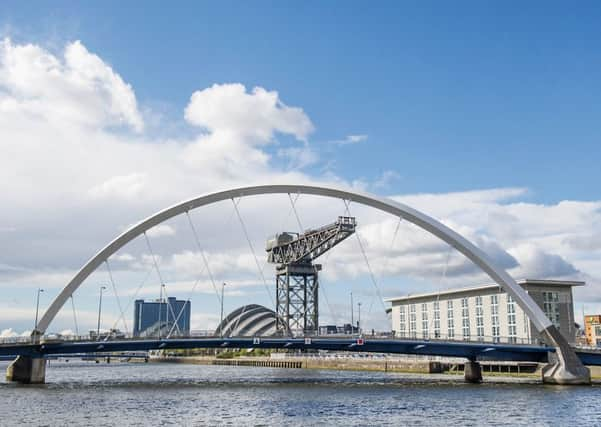Glasgow top of UK city list for growth in hotel industry


Accountancy firm PwC’s latest hotels forecast reported the average daily rate in Scotland’s largest city rose to £73.41 from £68.31 in the past six months.
Glasgow’s revenue per available room (revPAR), calculated by multiplying the average achieved room rate by the average annual room occupancy rate, grew 8.2 per cent to £58.08, eight times the pace of growth in the UK overall.
Advertisement
Hide AdAdvertisement
Hide AdBy contrast, revPAR in Edinburgh fell 1.6 per cent to £73.68, which the report attributed to an influx of new rooms and increased competition from serviced apartments.
Despite this, the Scottish capital remains the most expensive city outside of London for an overnight hotel stay at an average daily rate of £93.92.
The ongoing recovery in the oil and gas sector helped revPAR in Aberdeen grow 4.7 per cent to £35.85 and lifted the occupancy rate, although this stayed low at 63.5 per cent.
Liz Hall, head of hospitality and leisure research at PwC, said: “Glasgow’s reinvention as a modern city with international appeal for both tourists and businesses continues, with the city’s hotels showing an impressive performance, driven by the 7.5 per cent increase in average daily rate as more four-star hotels open.
“The performance of Glasgow’s hotels sector highlights the extent to which the city is now seen as a major tourist attraction, with the number of international visitors increasing by a fifth to 787,000 in 2017.”
“In Edinburgh, revPAR remains the second highest of all UK cities, but this and occupancy rate have slipped, probably as a result of new room supply and also competition from the home share market and serviced apartments.”
She added that hotels in Edinburgh remained “well placed”, with more than two million visitors in 2017 and record numbers of tourists attending the Fringe and International Festival this year.
The first half of 2018 brought close to £400 million investment in hotels in Scotland, more than double the full-year total for 2017.
Advertisement
Hide AdAdvertisement
Hide AdThe largest deal so far this year was the £85m sale of Edinburgh’s Caledonian Hotel to Abu Dhabi-based Twenty14 Holdings.
PwC forecasts a total deal volume for the UK hotel sector of around £6.8 billion by the end of the year, a 40 per cent increase from 2017. However, it predicts hotel trading growth will flatten in 2019 due to economic uncertainty, weak business travel demand and an influx of new rooms.
Sam Ward, UK hotels leader at PwC, said: “We anticipate a slowdown in portfolio deal activity in 2019 due to a combination of longer term investors entering the UK hotel market, US fund hotel portfolio owners taking advantage of the favourable low-cost debt terms currently available and uncertainty around leaving the European Union.”